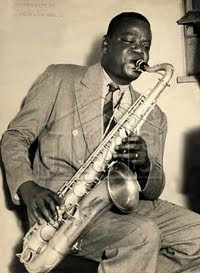Solo Accordion & Choro
 The accordion is a popular instrument often used in various Brazilian music styles, notably in forró and baião, but it has also been used with success in bossa nova and choro. When national radio broadcasting of live music acts started in Brazil during the 1930, the staff of musicians often had an accordionist among its members to supply solo voice and accompaniment in interplay with string instruments and reeds of the ensemble accompanying popular singers and playing choros and waltzes during intermission. Renown accordionists like Orlando Silveira, Chiquinho do Acordeon (Romeu Seibel) and Sivuca all started their career as members of a radio regional, the accompanying music ensemble used during radio transmission of live music, and the same set-up was also used by the record industry to promote popular vocalists and stars from radio. The popular choro 'Tico-tico no fubá' by Zequinha de Abreu was first recorded in 1930 by a typical regional, Orquestra Colbaz, that had an accomplished accordionist in front playing the melody, and following the world success of the tune it was soon adopted by accordionists as part of the standard repertoire. - I found an excellent solo version of 'Tico-tico no fubá' to illustrate the range of the instrument when playing choro. Enjoy Dorival Pinhata's solo accordion in 'Tico-tico no fubá'
The accordion is a popular instrument often used in various Brazilian music styles, notably in forró and baião, but it has also been used with success in bossa nova and choro. When national radio broadcasting of live music acts started in Brazil during the 1930, the staff of musicians often had an accordionist among its members to supply solo voice and accompaniment in interplay with string instruments and reeds of the ensemble accompanying popular singers and playing choros and waltzes during intermission. Renown accordionists like Orlando Silveira, Chiquinho do Acordeon (Romeu Seibel) and Sivuca all started their career as members of a radio regional, the accompanying music ensemble used during radio transmission of live music, and the same set-up was also used by the record industry to promote popular vocalists and stars from radio. The popular choro 'Tico-tico no fubá' by Zequinha de Abreu was first recorded in 1930 by a typical regional, Orquestra Colbaz, that had an accomplished accordionist in front playing the melody, and following the world success of the tune it was soon adopted by accordionists as part of the standard repertoire. - I found an excellent solo version of 'Tico-tico no fubá' to illustrate the range of the instrument when playing choro. Enjoy Dorival Pinhata's solo accordion in 'Tico-tico no fubá'The accordion - or as it is also named in Brazil: the sanfona - is well suited for playing solo, like the piano the accordion allows applying chord accompaniment in the left hand while playing the melody with the right. Here's another example of a solo accordionist playing choro applying modern harmony to the well know 'Lamentos' by Pixinguinha. Enjoy Olivio Filho's rendition of 'Lamentos'
In the studio group used by Jacob do Bandolim for recording sessions during the 1950s one of the accompanying musicians was an accordionist (- from time to time it was Orlando Silveira), who also had a solo spot on one of Jacob's hits, 'Doce de coco', from this period. Here's a contemporary version of 'Doce de coco' as performed by accordionist Chico Chagas accompanied by Nando Duarte on violão de 7 cordas - enjoy!
As mentioned above the accordion - or the sanfona - is used in different music styles all over Brazil. Especially the various North Eastern genres of music from the Pernambuco and Bahia regions are closely connected with the accordion. However, choro also blends in the repertoire of accordionists from this part of the country, here's an example of a master of the forró tradition, Oswaldinho do Acordeon, playing choro
One of the master accordionists known outside Brazil is Sivuca (- from Paraíba, Pernambuco), who excelled in various local genres as well as choro, bossa nova and even jazz. To end this small contribution enjoy Sivuca alone on stage performing his virtuosic version of 'Quando me Lembro', a typically North Eastern flavoured composition
Jo



1 Comments:
great post,
thanks for the info and vids.
i play ''sanfona'' and i'm going to try and learn some choro!
Post a Comment
<< Home